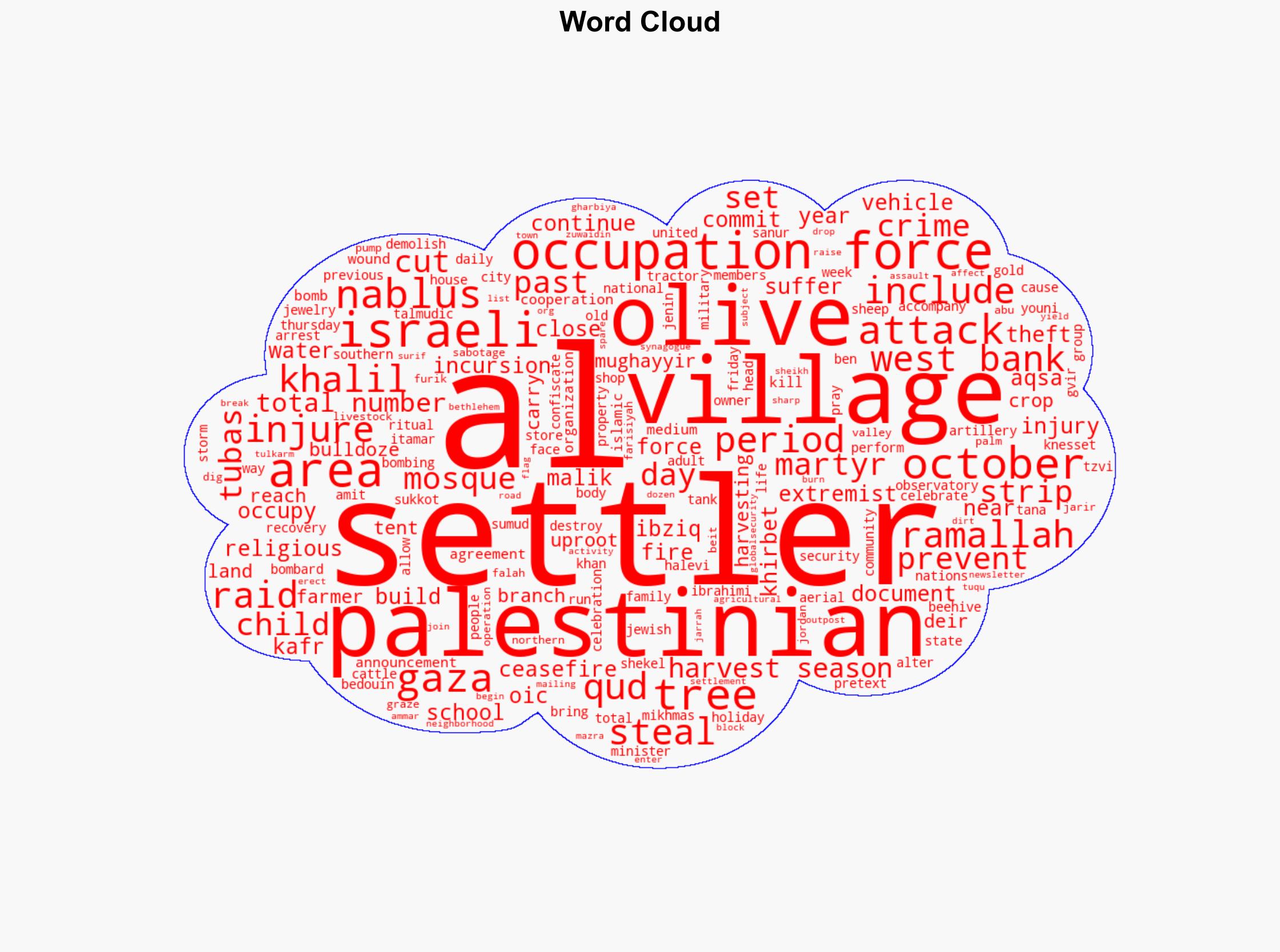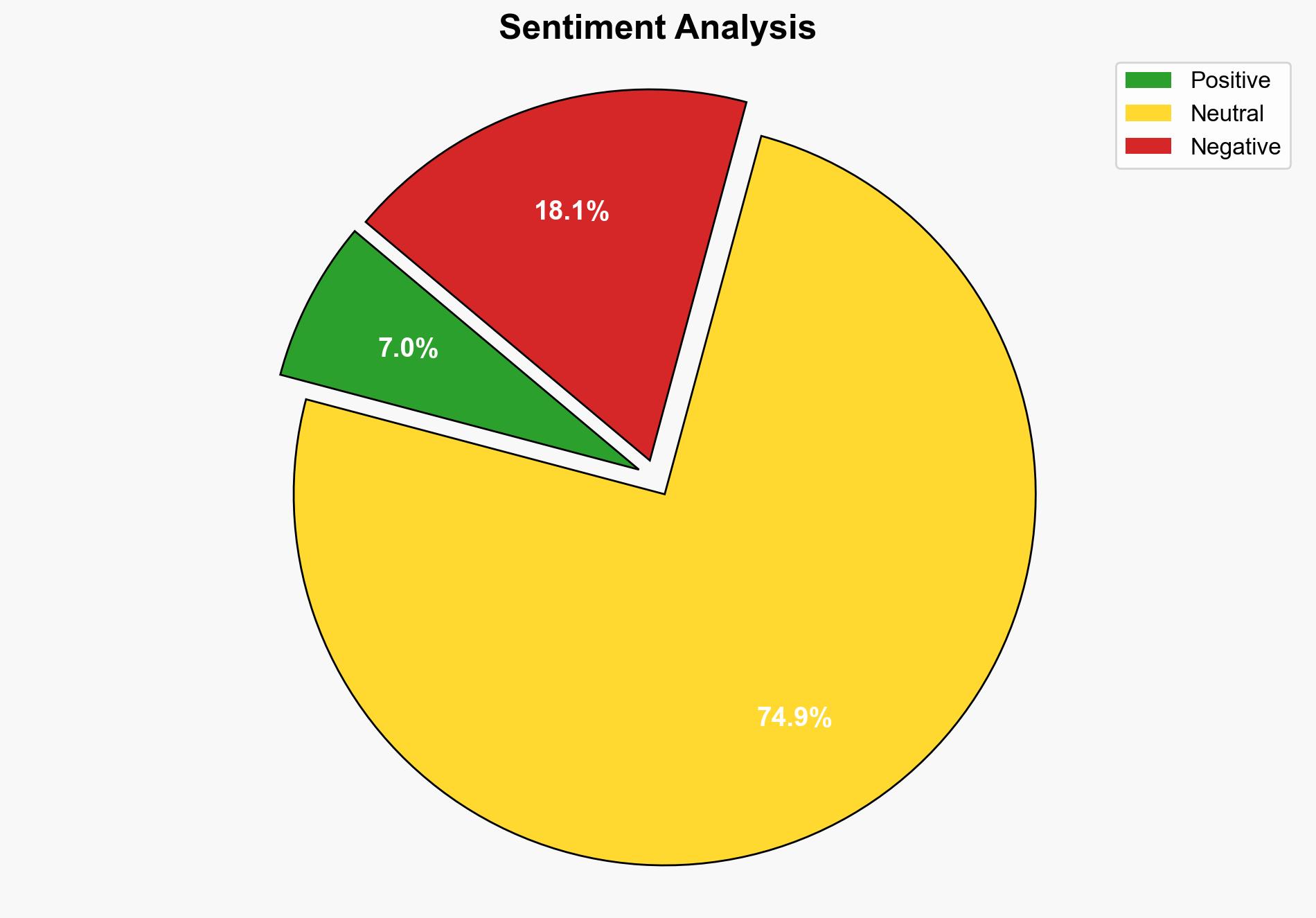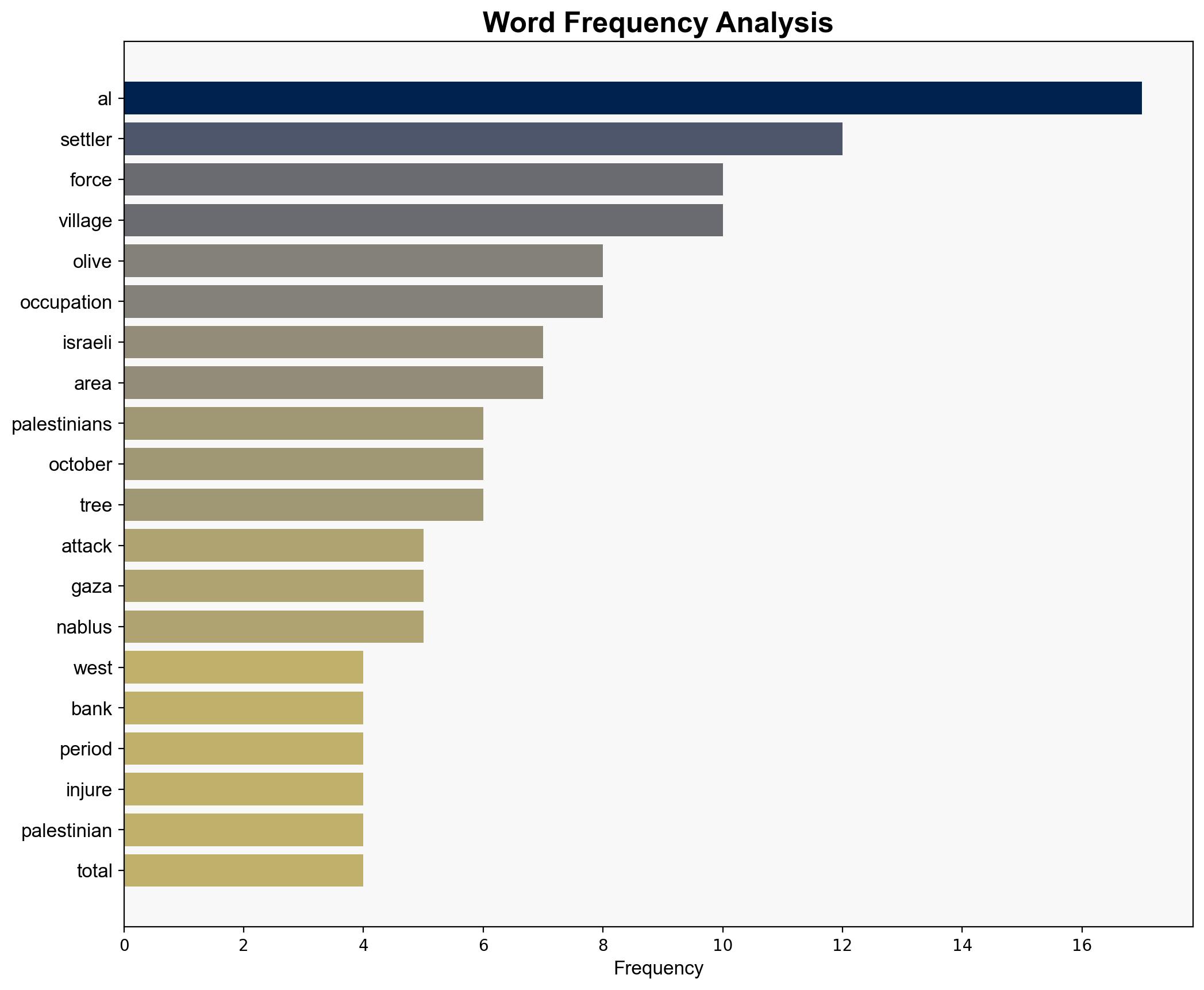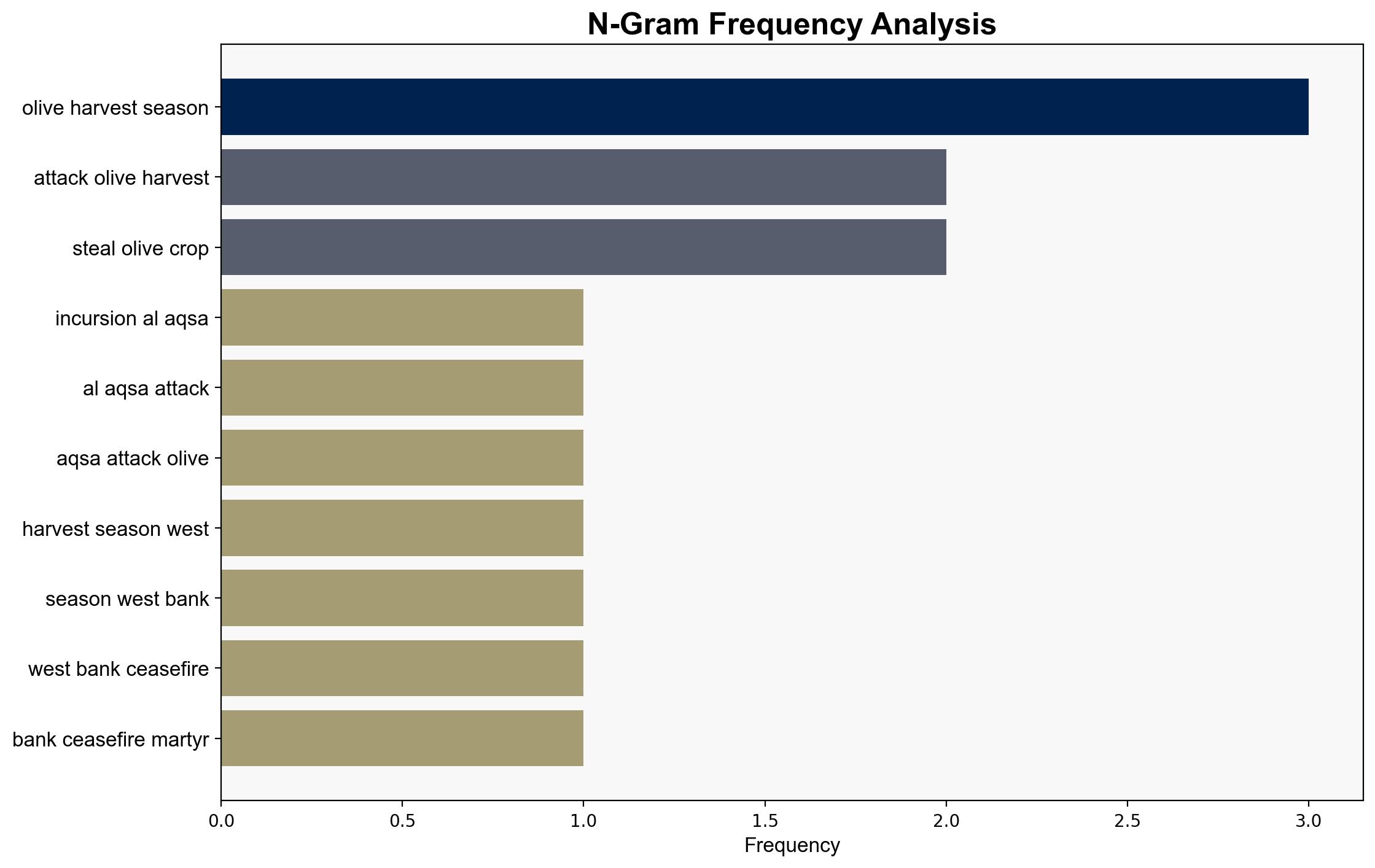Incursions into Al-Aqsa Attacks on the Olive Harvest Season in the West Bank —–Despite the Ceasefire 432 martyrs and wounded in Gaza – Globalsecurity.org
Published on: 2025-10-20
Intelligence Report: Incursions into Al-Aqsa Attacks on the Olive Harvest Season in the West Bank —–Despite the Ceasefire 432 martyrs and wounded in Gaza – Globalsecurity.org
1. BLUF (Bottom Line Up Front)
The ongoing incursions and attacks in the West Bank and Gaza, despite a ceasefire, suggest either a breakdown in ceasefire enforcement or deliberate provocations by Israeli forces and settlers. The most supported hypothesis is that these actions are strategic provocations to disrupt Palestinian socio-economic stability. Confidence level: Moderate. Recommended action: Increase diplomatic pressure on involved parties to adhere to ceasefire terms and protect civilian resources.
2. Competing Hypotheses
1. **Hypothesis 1**: The incursions and attacks are a result of a breakdown in ceasefire enforcement mechanisms, leading to uncoordinated actions by Israeli forces and settlers.
2. **Hypothesis 2**: The actions are deliberate provocations intended to destabilize Palestinian socio-economic conditions, particularly targeting the olive harvest season to weaken economic resilience.
Using Analysis of Competing Hypotheses (ACH 2.0), Hypothesis 2 is better supported due to the systematic nature of the attacks on agricultural resources and the timing coinciding with the olive harvest season, which is crucial for Palestinian livelihoods.
3. Key Assumptions and Red Flags
– **Assumptions**: It is assumed that the ceasefire terms are known and agreed upon by all parties. The systematic nature of the attacks suggests coordination rather than isolated incidents.
– **Red Flags**: Lack of international response or condemnation could embolden further provocations. The absence of clear communication from Israeli authorities regarding the ceasefire status raises questions about intent.
4. Implications and Strategic Risks
The continuation of these actions could lead to increased tensions and potential escalation into broader conflict. Economically, the disruption of the olive harvest could lead to significant financial losses for Palestinian communities, increasing dependency on external aid. Geopolitically, these actions could strain Israel’s relations with neighboring countries and international bodies.
5. Recommendations and Outlook
- Engage in multilateral diplomatic efforts to reinforce the ceasefire and ensure compliance by all parties.
- Monitor and document violations to hold accountable those responsible for provocations.
- Scenario-based projections:
- **Best Case**: Ceasefire is reinforced, and provocations cease, allowing for a peaceful olive harvest.
- **Worst Case**: Escalation into broader conflict, with significant civilian casualties and economic disruption.
- **Most Likely**: Continued low-level provocations with intermittent enforcement of ceasefire terms.
6. Key Individuals and Entities
– Itamar Ben Gvir
– Amit Halevi
– Tzvi Sukkot
7. Thematic Tags
national security threats, regional focus, socio-economic destabilization, ceasefire violations





